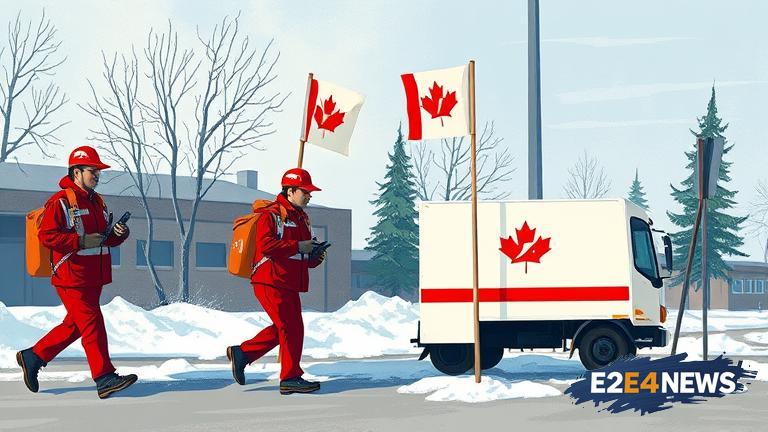The Canadian Union of Postal Workers (CUPW) has announced that its members have rejected the final offers from Canada Post, setting the stage for potential labor disruptions and changes to the country’s postal services. The union, which represents over 50,000 workers, had been negotiating with Canada Post for several months, but the two parties were unable to reach an agreement. The rejected offers included proposals for wage increases, benefits, and working conditions. The CUPW has stated that the offers did not adequately address the concerns of its members, including issues related to pay equity, job security, and workplace safety. The union has also expressed concerns about the impact of automation and technological changes on the postal industry. With the rejection of the final offers, the CUPW has indicated that it will proceed with plans for potential job action, including strikes and lockouts. This could lead to disruptions in mail delivery and other postal services across Canada. The Canadian government has urged the two parties to continue negotiating and find a resolution to the dispute. The government has also stated that it is prepared to intervene if necessary to ensure the continuation of essential postal services. The dispute between the CUPW and Canada Post has significant implications for the country’s postal industry and the economy as a whole. The postal sector is a critical component of Canada’s infrastructure, and any disruptions could have far-reaching consequences. The CUPW has argued that the company’s proposals would lead to a two-tiered system, where new employees would be paid less and have fewer benefits than existing workers. The union has also expressed concerns about the impact of the proposals on rural communities, where postal services are often limited. Canada Post has stated that it is committed to finding a solution that works for both the company and its employees. The company has also emphasized the need to adapt to changing market conditions and technological advancements in the postal industry. The dispute has sparked debate about the role of unions in the Canadian economy and the impact of labor disputes on businesses and communities. The CUPW has received support from other unions and labor organizations, which have expressed solidarity with the postal workers. The Canadian public has also been affected by the dispute, with many individuals and businesses relying on postal services for communication and commerce. As the situation continues to unfold, it remains to be seen what the outcome will be and how it will affect the future of postal services in Canada. The CUPW has stated that it is committed to finding a fair and equitable solution, while Canada Post has emphasized the need to balance the interests of the company and its employees. The dispute has highlighted the complexities of labor relations in the Canadian economy and the challenges of finding a balance between the interests of workers, businesses, and the broader community. In the coming weeks and months, the situation is likely to continue to evolve, with potential developments including further negotiations, job action, and government intervention. The outcome of the dispute will have significant implications for the postal industry, the economy, and the country as a whole. The CUPW and Canada Post must work together to find a solution that addresses the concerns of both parties and ensures the long-term sustainability of the postal sector. The Canadian government must also play a role in supporting the negotiations and finding a resolution to the dispute. Ultimately, the goal must be to find a solution that works for everyone involved and ensures the continuation of essential postal services for Canadians.





